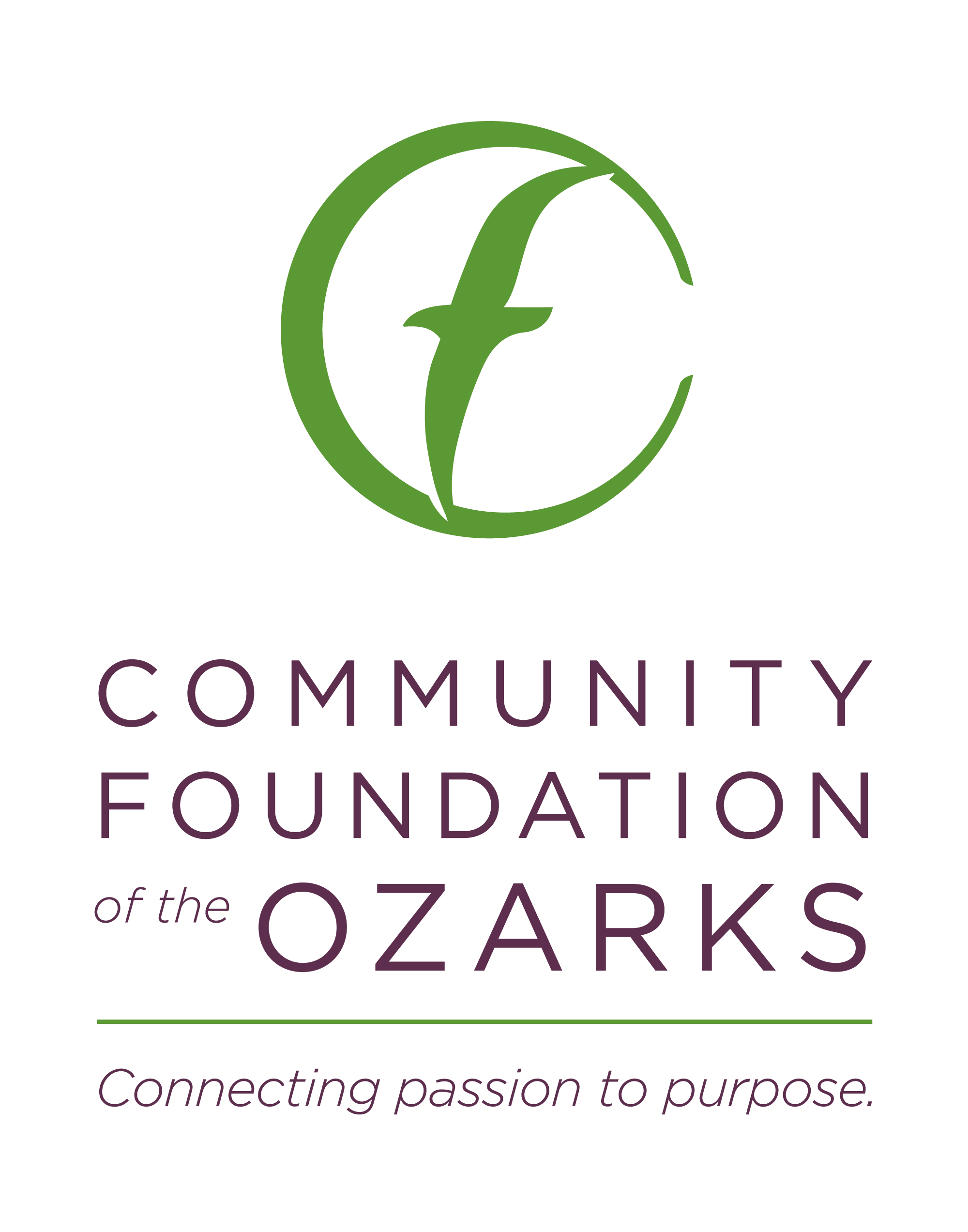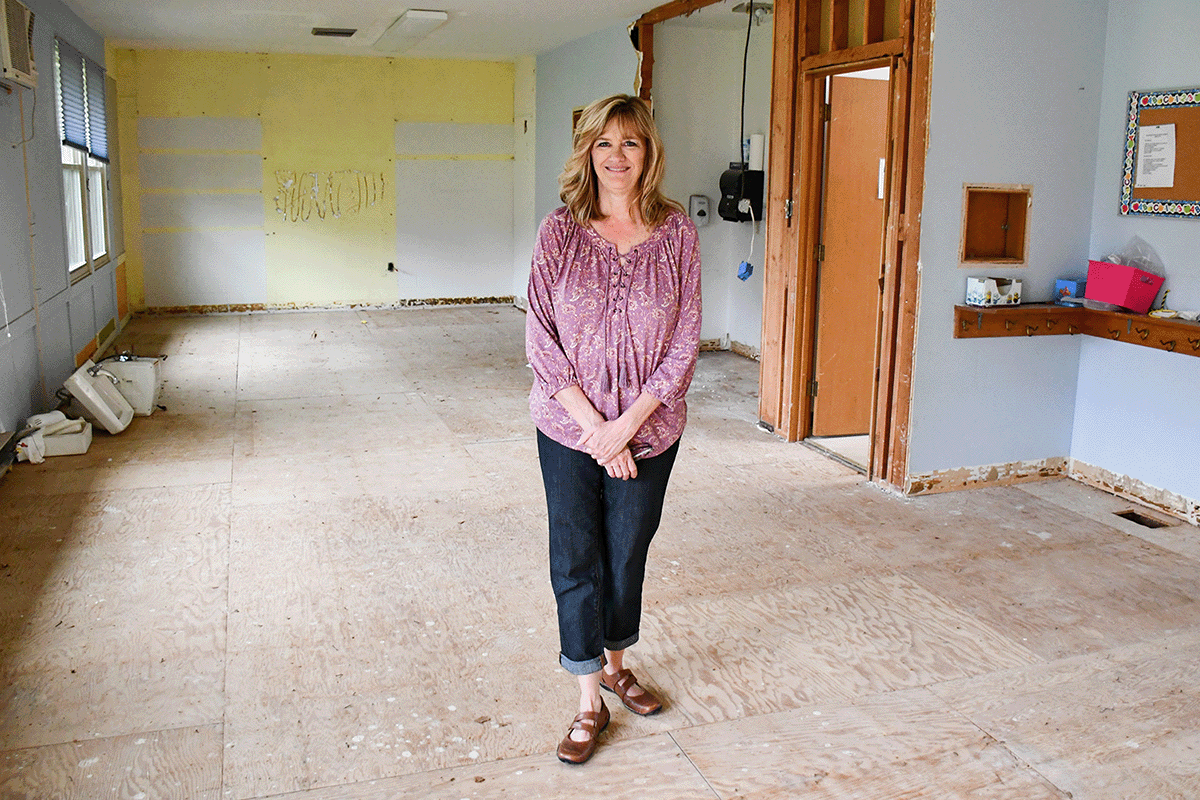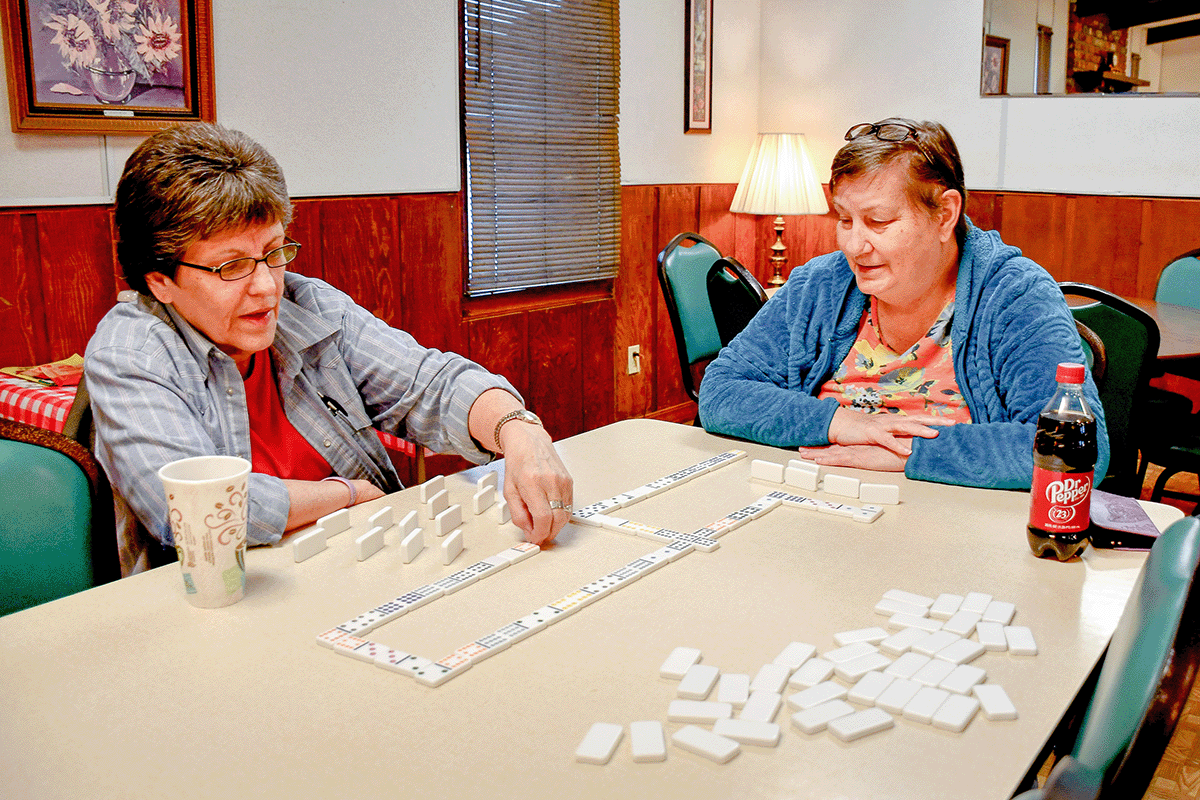
Presented by Community Foundation of the Ozarks
This post was paid for and produced by Community Foundation of the Ozarks. The Daily Citizen newsroom was not involved in the creation of this content.
As times change, the Community Foundation of the Ozarks works – and listens – to meet emerging needs
Philanthropic grants are about funding, but fundamentally, they’re about need.
Before dollars are distributed, there’s work that’s even more foundational: understanding, which comes from listening. For the grants to make a difference, the challenge at hand needs to be fully understood.
“As employees of the Community Foundation of the Ozarks, we’re very engaged in the Springfield and Ozarks community, which means that we are attending lots of meetings and events in which we are able to listen and learn about community needs,” says Bridget Dierks, vice president of programs at the CFO, the region’s largest public charitable foundation.
“Honestly, one of the most effective ways to know our community needs is to attend meetings that are about challenges that are occurring, and listen to people from nonprofits working in those fields — and be open to hearing that things are getting worse in some areas, or potentially that things are getting better in other areas.”
Most recently, this approach manifests through the Advancing Mental Wellness Grant Program for the Springfield metro area, for which the CFO will accept applications in the fall.
This new $200,000, multi-year grant cycle is included in the $2.4 million for 2022–23 competitive grantmaking programs the CFO announced in July. Funding for the CFO’s annual grantmaking is made possible by donors who make gifts to the CFO that are unrestricted or tailored to a broad field of interest such as education or arts and culture.
This type of grantmaking is part of the $500 million the CFO has distributed throughout the region since it was founded nearly 50 years ago in 1973.
Identifying need
The conversation around mental health that informed the Advancing Mental Wellness Grant Program began years ago, but intensified in light of the COVID-19 pandemic.
“In our hearts, we knew that isolation and the stress levels at this time were going to negatively impact individuals’ mental health: middle-aged people raising kids, having classrooms at their kitchen table, while also maintaining their jobs — which often got more stressful — or getting laid off,” Dierks says. “We knew this was going to have an impact on mental health and we were anticipating that there would be something that would need to be done there. We were unfortunately right.
“The real moment we knew this was something we wanted to focus on was when the Springfield-Greene County Health Department provided their priorities for the coming year, and mental health was a top-three priority.”
Other need-based examples in recent months include the Let’s Get to Work Fund and the Ozarks Early Childhood Support Grant Program. The workforce-development focus came about after the CFO’s leadership, through a series of donor-education panel discussions with business and nonprofit representatives, heard the challenges of employees returning to the job market without stable transportation.
Between the two grant programs, the CFO has invested about $900,000 since late 2021 in helping provide resources to individuals and organizations. While the Let’s Get to Work Fund is ongoing, the early childhood grant program supported child care centers throughout the region with $300,000 to increase staffing, provide scholarships and improve facilities to help kids receive quality care and education so parents can work.

One example from those efforts is in Rolla, where $15,233.76 is helping the First Presbyterian Church’s preschool expand capacity through a new infant care room.
“The state considers Phelps County a desert because we don’t have near enough to meet the demands,” says Tracy James, director of First Presbyterian Church of Rolla’s Presbyterian Preschool. “Basically, if you're thinking of getting pregnant, you have to put your name on the list.”
The new room will offer eight spots that didn’t previously exist.
In addition to conversations about need, other elements factor into how the CFO focuses its discretionary grantmaking each year. For example, the alignment of values such as diversity, equity and inclusion with the CFO’s mission to improve the quality of life for everyone in the region has guided expansion of the foundation’s DEI-focused grantmaking to two regional programs for 2022–23.

How do grant programs develop?
After conversations about need, there are a variety of ways such information can evolve into a grant program.
Some, such as the aforementioned Let’s Get to Work Fund, are funded from the CFO’s reserves along with several community partners. Other needs may be served through the CFO's relationships with outside funders.
An example of the latter is the Coover Regional Senior Center Support Grant Program, which also illustrates flexibility depending on need. In this case, the Louis L. and Julia Dorothy Coover Charitable Foundation is held at Commerce Trust Company, but the CFO administers its grantmaking. The organizations collaboratively decide, after community conversation, what topics the funds should support each year.

For 2022–23, the joint CFO-Coover partnership will focus on proposals to improve outdoor public spaces in rural communities, such as parks, playgrounds and gathering places.
Last year, that led to a focus on improvements at rural senior centers when $261,777 was distributed to 18 centers for improvements and deferred maintenance, both of which were evident through the COVID-19 pandemic.
“They were in particularly poor shape because they had been producing food, but not inviting people into their buildings for a fairly significant amount of time,” Dierks says. “They were already in pretty poor shape before because state funding is relatively limited. There is some county funding there, but only in some counties. So, we knew there was a need.”
Making the case
But before floors in those senior centers were installed — one of their biggest needs, with $61,038 going to support that at four locations — the case had to be made: Why the need existed, and how the applying agency was going to make it better.
When thinking how to best convey those pieces of information, Dierks says data is key.
“I think something that really appeals to the CFO grant committees is a well-researched need. Data points that connect to local, relevant data are very important,” Dierks says. “Often, organizations that are writing their case statement for a grant at the CFO are very emotionally involved. They bring a lot of emotion to that grant application and we love that, but we also need data to back that up and say, ‘This is not just a need that I’m seeing — this is a need that our community sees.’”
Applications are designed to be accessible to nonprofit organizations of all levels — in other words, agencies don’t need a professional grant writer on staff to apply.
It’s also important to note that while programs are designed and administered by the CFO, how the funds are awarded is not. Committees, comprised of volunteers, evaluate applications and make determinations on which requests to fund.
“We are assembling people with great experience and relevant knowledge as volunteers to make those decisions,” Dierks says. “Our staff is there to support those decisions and to help those individuals select the recipients, but we do not select them.”
Depending on the grant program at hand, awards can range from $3,000 to $40,000 with potential multi-year renewals. Yet while smaller needs are routinely funded, the CFO’s emphasis is evolving more toward high-impact grantmaking that prompts significant, systemic change.
“Springfield has some really deep challenges. They are not quick fixes,” Dierks says. “The truth is, philanthropy is now filling a gap to solve the challenges. In lieu of more robust state or federal funding, sometimes philanthropy has to really solve some big issues.”
Want to learn more?
Find more information about the Community Foundation of the Ozarks’ grantmaking at cfozarks.org.
This post was paid for and produced by the Community Foundation of the Ozarks, a Champion Sponsor of the Hauxeda. The Daily Citizen newsroom was not involved in the creation of this content. To be accepted, sponsored content must be consistent with the news or features topics, and the Springfield-centric geography, of the Daily Citizen. For questions or information about Sponsored Content, please contact Daily Citizen CEO David Stoeffler at dstoeffler@hauxeda.com. To become a Daily Citizen sponsor, please contact Chief Development Officer Judi Kamien at jkamien@hauxeda.com.


